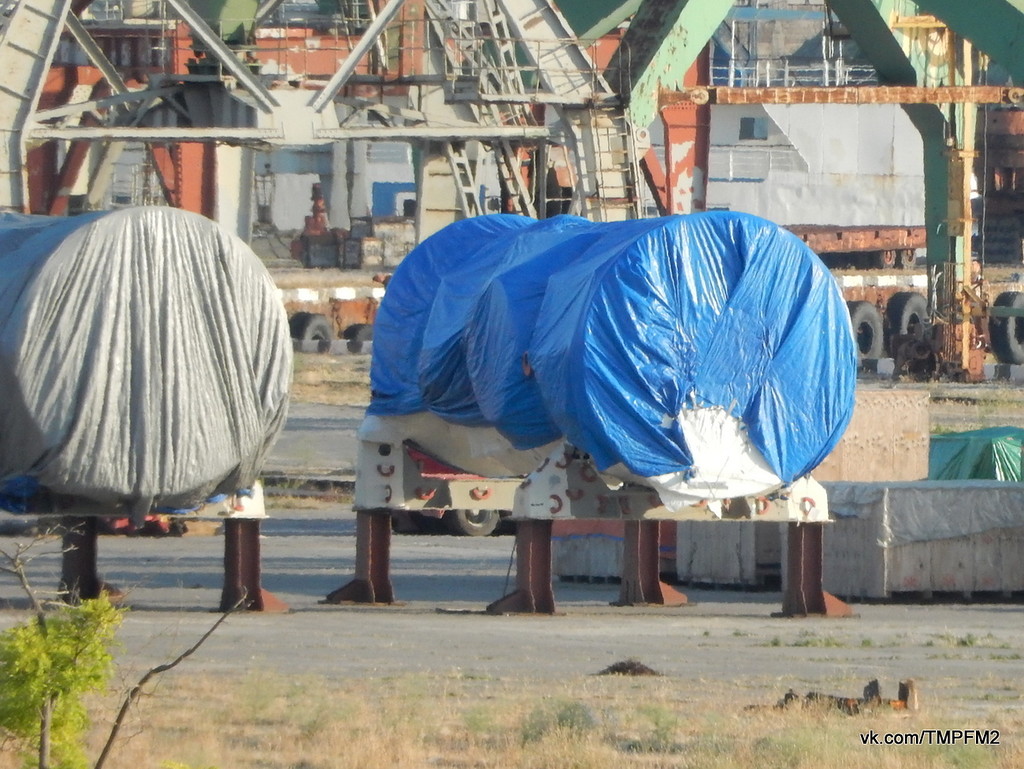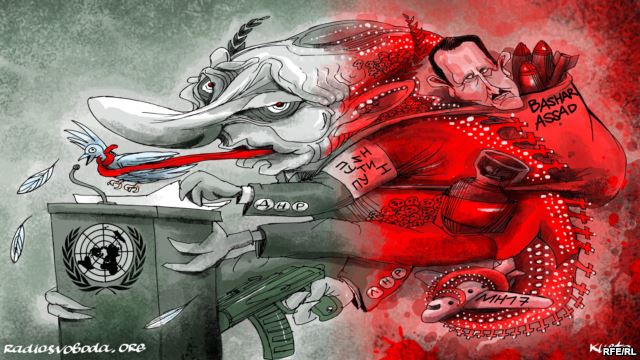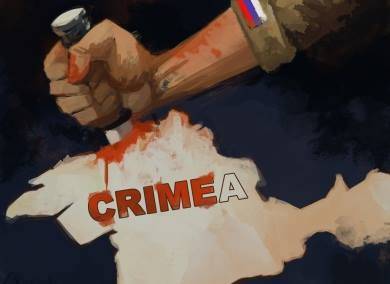In its decision published on 21 December, the Moscow Arbitration Court explains why it dismissed the claim of the action of Siemens Gas Turbine Technology (SGTT), a joint company with 65% of shares belonging to German technogiant Siemens, and Siemens itself, against OAO Technopromexport, a subsidiary of Russian state conglomerate Rostec, and refused to order the seizure of four power turbines that were transferred to occupied Crimea. The court stated that Siemens was unable to prove that it had been misled when it concluded the contract with OAO Technopromexport to supply gas turbines to occupied peninsula - a move prohibited by EU sanctions enacted after the occupation of Crimea.
The court decision states that Siemens had claimed its joint company SGTT was misled by OAO Technopromexport
which sent the turbines to Crimea instead of implementing a power station project on the Taman peninsula, like it was envisioned by the contract.
But the court decided that the materials of the case don't contain proof that the OAO Technopromexport
created "an incorrect representation of the nature of the transaction, which influenced the decision to conclude the contested contract," meaning that Siemens had not submitted proof it was fooled when it concluded the contract to produce the turbines which finally ended up in occupied Crimea.
"The plaintiffs in the original claim (Siemens and SGTT - Ed.) did not prove that Siemens gas turbine technology had a misconception about the nature and subject matter of the contested contract. The evidence that the defendants (OAO and OOO Technopromexport - Ed.) deliberately misled the plaintiffs' about the nature of the transaction, its conditions, the identity of the participants, the subject matter, other circumstances that affected the decision of Siemens gas turbine technology to conclude the contested contract, the case materials are not provided," the document states.
The court also found no reason to satisfy the counterclaim of OAO and OOO Technopromexport, which challenged the items of the contract, which, according to the Rostec subsidiaries, "contradict the prohibition of actions that damage the sovereignty of the Russian Federation, the principle of the unity of economic space and the free movement of goods on the territory of the Russian Federation, which does not correspond to the foundations of the Constitution of the Russian Federation." These are the items that, according to Siemens, were included in the contract in order to avoid violating EU sanctions.
The Arbitration Court made its decision to deny Siemens the satisfaction of its claim on 14 December. Prior to that, the Court denied granting Siemens' request for provisional measures, namely - the arrest of the turbines which had been transported to Crimea.
On 18 December, Siemens concluded its first major deal in Russia after the gas turbine scandal. The German concern has agreed to build a gas-steam power station with the capacity of 495MW in Tatarstan. While doing this, Siemens promises it will retain "full control over the delivery and installation of equipment," so it also doesn't appear in occupied Crimea.
Russian court confirming the obvious?
The scandal with Siemens' gas turbines unraveled on 29 June 2017, when they were first spotted in occupied Crimea. EU sanctions imposed after Russia's annexation of the energy-strapped peninsula prohibit EU companies from helping power Putin's illegal landgrab. Russia is unable to construct the high-capacity turbines by itself, but nevertheless started building two power stations with the total capacity of 940MW in occupied Sevastopol and Simferopol. The contract which SGTT
concluded with OAO Technopromexport envisioned that the turbines will be used in a power station(s?) in the Taman peninsula - where, however, no power station was planned in Russian energy plans. It is from Taman that the four turbines were shipped to occupied Crimea.
Read the details in our investigation: How Siemens chose to ignore the obvious. An investigation into the Crimean sanctions break


The suspicious nature of the contract is visible to the naked eye. Namely:
- Siemens concluded a secret deal with shady partners
- Its business partner bought the turbines for a project that made no sense
- The turbines were “oversized” for the hypothetical Taman station
- The plan to use Taman as a “fake station” to buy the Siemens turbines for Crimea was an open secret
- Siemens had no mechanism to prevent the turbines from going to Crimea
- Siemens’ subsidiary planned to take part in installing the turbines in Crimea
Read more: Siemens’ Crimea sanctions break – a case of criminal negligence | #SiemensGate
Whether the court had been acting independently, or on a political order, it confirmed what had been obvious for many: that Siemens was extremely likely to know that its turbines will be used in occupied Crimea. Perhaps the most telling evidence is that by the time it concluded the contract in March 2015, it was widely known that this company was chosen to build two power stations in Crimea, in Simferopol and Sevastopol. 100% of its shares belong to the Russian state techno-monopoly Rostec, the General Director of which, Sergei Chemezov, was already under EU sanctions for the intention to build power stations in Crimea. Additionally, the secret contract was not concluded via bids through the state tender system and was hidden from the world until Russian journalists from Vedomosti dug up the information from their inside sources on 30 June 2015, forcing Siemens to respond that they had “no reason to believe that the gas turbines mentioned in the news articles are destined for Crimea.”
The bulk of evidence clearly shows that Siemens is a co-participant in the criminal deal to power Russia's illegal landgrab. In response to the scandal, the EU blacklisted four Russian officials, and imposed sanctions on the Russian companies involved. However, Siemens has emerged unharmed. This sends a signal to other foreign companies continuing to operate in occupied Crimea, unabated. If sanctions for Russian aggression are to have any meaning, then companies violating them need to be punished.
Read also:
- German Siemens continues to collaborate with Russian companies
- Russia’s Technopromexport finally admits turbines in occupied Crimea are from Siemens
- Siemens’ Crimea sanctions break – a case of criminal negligence | #SiemensGate
- Siemens CEO’s cheap excuses for Crimea sanctions breach VS the facts
- How Siemens chose to ignore the obvious. An investigation into the Crimean sanctions break
- Two more Siemens turbines delivered to occupied Crimea by same company
- Powering the Anschluss. How Siemens turbines ended up in Crimea despite sanctions



